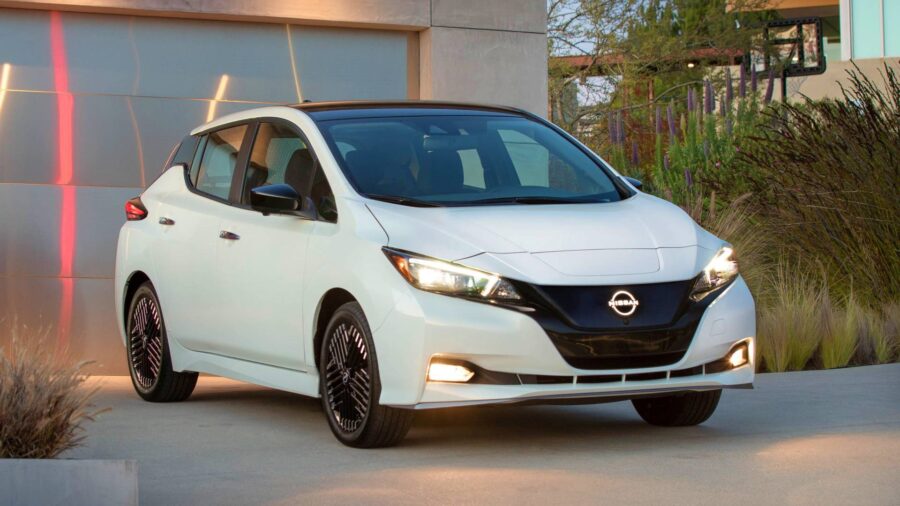Welcome to the world of electric mobility, where innovation meets sustainability. In this article, we delve into the fascinating realm of the Nissan Leaf, a trailblazing electric vehicle that has revolutionized the automotive industry. From its inception to its remarkable features, we explore the marvels of this eco-friendly marvel.
Why Wheel Nut Torque Matters
- Ensuring Safety: The proper torque of lug nuts is crucial for maintaining the safety and stability of a vehicle. Adequate torque prevents the wheels from loosening during operation, reducing the risk of accidents caused by wheel detachment.
- Optimal Performance: Wheel nut torque directly affects the performance of a vehicle. Incorrect torque can lead to uneven pressure distribution on the wheel, resulting in compromised handling, increased tire wear, and decreased fuel efficiency.
- Preventing Damage: Over-tightening or under-tightening lug nuts can cause damage to the wheel studs, threads, and even the wheel itself. By adhering to the recommended torque specifications, you can prevent costly repairs and ensure the longevity of your Nissan Leaf.
- Manufacturer’s Guidelines: Following the prescribed torque specifications set by the manufacturer is essential. These specifications are carefully determined to maintain the structural integrity of the vehicle and optimize its overall performance.
Now that we understand the significance of wheel nut torque, let’s delve deeper into the specific lug nut size and torque specifications for the Nissan Leaf. Buckle up and get ready to unlock the secrets of this remarkable electric vehicle!
Lug Nut Sizes for Different Trims and Generations
First Generation (2010-2017)
When it comes to the lug nut sizes for the first generation of the Nissan Leaf, it’s important to note that they can vary depending on the trim level and engine type. Here is a breakdown of the lug nut sizes for different trims:
| Trim Level | Lug Nut Size (mm) |
|---|---|
| S | 12×1.25 |
| SV | 12×1.25 |
| SL | 12×1.25 |
It’s important to ensure that you have the correct lug nut size for your specific trim level to ensure proper fitment and safety.
Second Generation (2018-present)
With the introduction of the second generation Nissan Leaf, there have been some changes in lug nut sizes. Here’s a breakdown of the lug nut sizes for the different trims:
| Trim Level | Lug Nut Size (mm) |
|---|---|
| S | 12×1.25 |
| SV | 12×1.25 |
| SL | 12×1.25 |
As you can see, the lug nut sizes have remained consistent across the different trims of the second generation Nissan Leaf.
Lug Nut Torque Specifications for Different Generations
First Generation (2010-2017)
Proper lug nut torque is crucial to ensure the safety and performance of your Nissan Leaf. Here are the recommended torque specifications for the lug nuts of the first generation:
| Generation | Torque Specifications (ft/lbs) | Torque Specifications (Nm) |
|---|---|---|
| First Generation | 80-94 ft/lbs | 108-128 Nm |
Second Generation (2018-present)
For the second generation Nissan Leaf, the lug nut torque specifications remain consistent. Here are the recommended torque specifications:
| Generation | Torque Specifications (ft/lbs) | Torque Specifications (Nm) |
|---|---|---|
| Second Generation | 80-94 ft/lbs | 108-128 Nm |
It’s important to note that these torque specifications are provided by the manufacturer and should be followed diligently to ensure the safety and longevity of your Nissan Leaf.
Wheel Nut Torque Chart for Different Trim Levels and Years
First Generation (2010-2017)
Here is a comprehensive wheel nut torque chart for the first generation Nissan Leaf, specifying the torque values for both front and rear wheels:
| Trim Level | Year | Front Wheel Torque (ft/lbs) | Front Wheel Torque (Nm) | Rear Wheel Torque (ft/lbs) | Rear Wheel Torque (Nm) |
|---|---|---|---|---|---|
| S | 2010-2017 | 80-94 ft/lbs | 108-128 Nm | 80-94 ft/lbs | 108-128 Nm |
| SV | 2010-2017 | 80-94 ft/lbs | 108-128 Nm | 80-94 ft/lbs | 108-128 Nm |
| SL | 2010-2017 | 80-94 ft/lbs | 108-128 Nm | 80-94 ft/lbs | 108-128 Nm |
Second Generation (2018-present)
For the second generation Nissan Leaf, the wheel nut torque specifications remain consistent. Here’s the chart for the different trim levels:
| Trim Level | Year | Front Wheel Torque (ft/lbs) | Front Wheel Torque (Nm) | Rear Wheel Torque (ft/lbs) | Rear Wheel Torque (Nm) |
|---|---|---|---|---|---|
| S | 2018-present | 80-94 ft/lbs | 108-128 Nm | 80-94 ft/lbs | 108-128 Nm |
| SV | 2018-present | 80-94 ft/lbs | 108-128 Nm | 80-94 ft/lbs | 108-128 Nm |
| SL | 2018-present | 80-94 ft/lbs | 108-128 Nm | 80-94 ft/lbs | 108-128 Nm |
Practical Recommendations for Maintaining Wheel Nut Torque
1. Regularly Inspect Lug Nuts
Make it a habit to visually inspect the lug nuts of your Nissan Leaf to ensure they are properly tightened and in good condition. Look out for any signs of looseness, rust, or damage.
2. Use a Torque Wrench
Invest in a reliable torque wrench to accurately tighten the lug nuts to the recommended torque specifications. This will help prevent over-tightening or under-tightening, ensuring optimal performance and safety.
3. Follow Manufacturer’s Guidelines
Always refer to the manufacturer’s guidelines and specifications for lug nut torque. These specifications are designed to maintain the structural integrity of your vehicle and should be followed diligently.
4. Retorque After Wheel Removal
Whenever you remove a wheel for maintenance or tire rotation, it is essential to retorque the lug nuts after reinstallation. This ensures that they are properly seated and tightened to the correct torque.
5. Seek Professional Assistance
If you are unsure about the lug nut torque or lack the necessary tools, it is recommended to seek professional assistance from a certified technician. They have the expertise and equipment to ensure proper torque and safety.
By following these practical recommendations, you can maintain the wheel nut torque of your Nissan Leaf, ensuring a safe and smooth driving experience.

